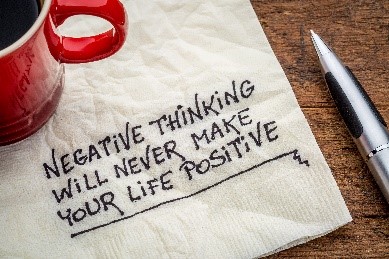First a quote: “Gratitude and attitude are not challenges; they are choices.”— Robert Braathe
I’m going to ask you to do something I often ask of workshop participants. This is an experiment of sorts. Know up front the task is only possible as a mental exercise because doing it would be impossible. It is a three-step process. Here it is:
First, I would like you to visualize all the people you know, from all aspects of your life, facing you in one single line from left to right. (For some, this will be a very, very long imaginary line.)
Second, I would like you to mentally arrange these people from “most successful” on one end of the line to “least successful” on the opposite end of the line in a continuum. For this exercise, you may use your own personal definition of success. For some, it might be financial or career success, for others, it might be relational, family, or spiritual success. For still others it may be a happiness index of some kind. I have learned that for this activity, the definition doesn’t seem to matter much.
Now, looking at all the people from “most successful” on one side to “least successful” on the other end, what do you think is the biggest differentiator between the people standing on opposite ends of the spectrum? What do the successful people tend to have in common that separates them from those on the other end?
Based on my experience, with most workshop participants and groups, I can predict your answer. Almost always, the number one answer I get in that mental activity is… ______________? If you guessed “attitude”, then you agree with most people who have participated in this experiment over the years.
I find this puzzling! If most people know that “one’s attitude” is a key factor in “one’s level of success” in almost every aspect of life, why do so many people persist with a negative attitude? It seems the correlation is obvious to even the casual observer. I offer three possible explanations:
- People truly don’t know how important a positive attitude is to their level of success in life.
- People have low self-awareness and don’t know how their attitude is received or perceived by others. (They believe their attitude is just fine and not a problem. Simultaneously, they often see other people as the primary source of problems in their life.)
- People have come to believe their attitude is justified. (“If you had my boss, my spouse, or my upbringing, you would have a bad attitude too.”)
I was once taught that attitude is nothing more than the outward expression of inward thoughts. How we think on the inside determines our attitude on the outside. I’d like to suggest another definition; attitude is nothing more than a person’s “habit pattern response” to life. In other words, a bad attitude has become a habit. To change our attitudes, we must change and upgrade our thinking… and we must do so intentionally.
I would like to convince you that attitudes are a choice we make, minute by minute, day by day, person by person. Here is my challenge to you for this week; think and act intentionally. If you’re not proud of your recent attitude, choose to be more positive this week and see what happens. Don’t leave your attitude to chance or habit this week. Choose your attitude, your “habit pattern response to life” intentionally!
Two bonus quotes:
“Things turn out best for the people who make the best of the way things turn out.” ― John Wooden
“No pessimist ever discovered the secrets of the stars, or sailed to an uncharted land, or opened a new heaven to the human spirit.” ― Helen Keller
How will you lead differently, or better, this week?
All the best! Give your best. Do your best. Be your best and the best shall be returned to you in full. I promise.
Sincerely,
Bryan Yager
208.376.1701
“Expanding Your Capacity for Success”

